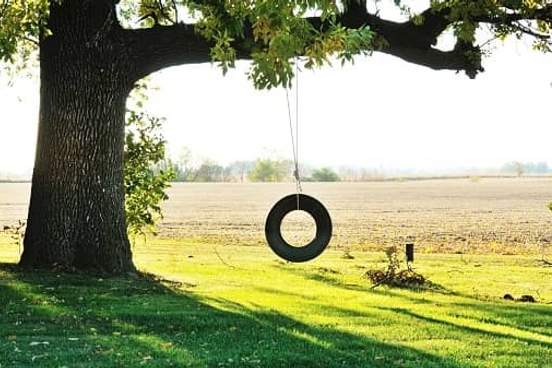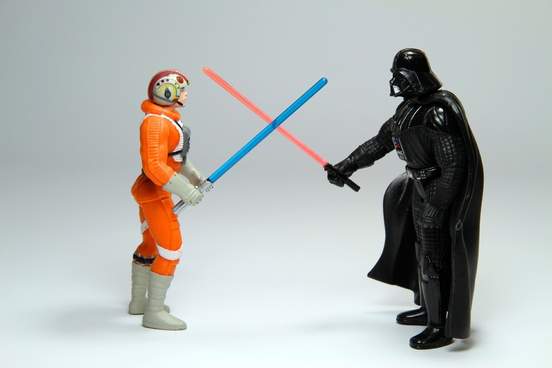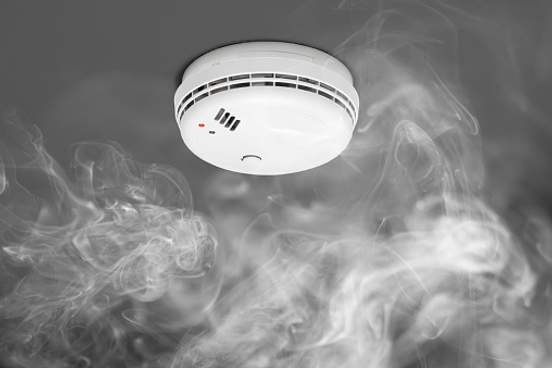Sign up for the View from Westminster email for expert analysis straight to your inbox
Get our free View from Westminster email
This list is left over from the print edition of The Independent on Sunday, which ceased in March last year. The parting shot of Mike Higgins, editor of its magazine, The New Review, at the back of which the Top 10 originally appeared, was to comment that eschatology, the doctrine of last things, was a useless word.
This went down badly with the theological community on Twitter, so I quickly conceded that it is a fine and wonderful piece of the language, albeit one for which I have no use. As David McKay said, I won’t stress over it, it’s not the end of the world.
1. God. David Boothroyd continued the religious theme, citing Charles Bradlaugh (above): “The word ‘God’ is to me a sound conveying no clear or distinct affirmation.” (From “A Plea for Atheism”, 1883.)
2. Skillset, upskill, learnings, synergise, ideation, rightsize, solutioneer, agreeance, hyperlocal, benchmarking. That’s 10 from Adam Greves alone.
3. Neoliberal. Nominated by Graham Kirby and Jake Goretzki mainly, I suspect, because it drives some people on Twitter wild to suggest their politics is built on opposing a chimera. Graham also suggested listicle, which I ruled out of order; guesstimate, to which David Curran objected (a useful shade of meaning between guess and estimate); and incentivise, which I accepted, even though I have used it myself recently (“encourage” is always preferable). And Jake also proposed “basically”.
4. Utilise. When you could use “use” instead, said Lesley Smith. Which is always.
5. Pusillanimous. “‘Cowardly’ means the same and is easier to spell,” said Clyde Davies.
6. Comestible. Ian C said: “There must be thousands in English on account of Anglo-Saxon and Romance alternatives, so it is just a case of picking the silliest.”
7. Otiose. It means useless, said Akash Paun. Oh, very clever. “Serving no practical purpose or result; archaic: indolent or idle,” according to the Oxford Dictionary. “Late 18th century: from Latin otiosus, from otium ‘leisure’.” Some lawyers on Twitter said they used it a lot in their pleadings. No further questions, your honour.
8. Incredibly. Fiona Mactaggart, the former Labour MP, said: “Incredibly is now used to mean ‘very’ about things which are perfectly credible.” Talking of “very”, GH Neale said it was itself superfluous. Which I have disproved in the previous entry.
9. Potable, for drinkable (water). Chris Gibbon: “On the rare occasions I see it, it makes me stop and re-read the sentence, assuming it’s a misprint.”
10. Ongoing. Robert Orchard: “Dire 1980s Americanism, now depressingly ubiquitous. Perfectly good English alternative is ‘continuing’. Worse: ongoing situation.”
ThatBlokeThere tried to nominate “political commentator”. I said that was two words, to which he replied that I had only another eight left to find, then. Fortunately, my decision is final. Honourable mentions for Sonja, Charles Wheeler and Geoffrey Mamdani for “proactive” (“What does the ‘pro-’ add?”), “robust” and “millennial”.
But I was told off by Ros Hewitt: “There are no useless words, just people who don’t know how to use words. Read more books and grow your vocabulary people.” Who could argue?
Next week: Misattributed Quotations, such as, “the NHS will last as long as there are folk left with the faith to fight for it,” often ascribed, especially on social media, to Aneurin Bevan
Coming soon: Actors who everyone thought would be terrible in a role but who turned out to be great, inspired by Tom Cruise in Interview With The Vampire (1994)
Some of these words are on my Banned List, the e-book of which is available for just £4.79. Your suggestions, and ideas for future Top 10s, in the comments please, or to me on Twitter, or by email to top10@independent.co.uk
Skip to content
Bimonthly and biweekly are the two most useless words in the English language. Webster defines bimonthly as: “1) occurring every two months; 2) occurring twice a month.” I’m not kidding. Those are two completely different meanings for the exact same word. How stupid is that? Why in the world do we allow such nonsense to exist? In its definition of the prefix “bi,” Webster has this to say:
Many people are puzzled about bimonthly and biweekly, which are often ambiguous because they are formed from both senses 1b and 2b of bi-. This ambiguity has been in existence for nearly a century and a half and cannot be eliminated by the dictionary. The chief difficulty is that many users of these words assume that others know exactly what they mean, and they do not bother to make their context clear. So if you need bimonthly or biweekly, you should leave some clues in your context to the sense of bi- you mean. And if you need the meaning “twice a,” you can substitute semi- for bi-. Biannual and biennial are usually differentiated.
Like they said, semimonthly is defined as twice a month, so that answers my problem. But I vote for eliminating bimonthly and biweekly from the English language because they are useless.
For Part Two of our Beautiful, Useless Words, click here.
For Part Three, click here.
Definition:
bad handwriting
Degree of Usefulness:
Pretty useful. Also, pretty evocative.
An Example:
Nor do I correct much of his Cacography, except in some Proper Names, and his Spanish, which he strangely mangles.
— J. Morgan, Phonix Britannicus, 1731
Acersecomicke
Definition:
“one whose hair was never cut”
(Henry Cockeram, English Dictionarie, 1623)
Degree of Usefulness:
This curious word is rarely, if ever, found in natural use. It appeared occasionally in 17th-century dictionaries, largely disappeared for a few hundred years, and then reappeared in the 20th century in books of trivia or writing about 17th-century lexicography. That’s history’s way of saying: useless.
Definition:
rambling alone : marked by solitary wandering
Degree of Usefulness:
Almost too useful, honestly. At least for us dictionary folk.
An Example:
Long years had wept by rock and hill and glade,
To fields of asphodel, was seen no more
Solivagant, upon the Attic shore.
— New Statesman and Nation (London, Eng.), 11 Nov. 1944
Definition:
suspended by or strung upon a thread
Degree of Usefulness:
Not an everyday word, but a good one to have in your back pocket.
An Example:
Filipendulous tubers are attached to the parent plant by underground runners, or cords, which spring not from the roots but the lower part of the stem.
— Anthony Todd Thomson, Lectures on the Elements of Botany, 1822
Flingee
Definition:
«one at whom anything is flung»
(Oxford English Dictionary, 2nd Ed., 1989)
Degree of Usefulness:
If you find yourself needing it often, maybe it’s time to rethink some things.
An Example:
Moments later, someone was sweeping around left end, following his spindly blockers, dodging would-be tacklers until a mass of arms surrounded him, latched on and flung him into the mush. Flinger or flingee, this was heaven.
— Neil Chethik, Detroit Free Press, 18 Jan. 1994
Jentacular
Definition:
«pertaining to breakfast»
(Webster’s New International Dictionary, 2nd Ed., 1934)
Degree of Usefulness:
Some might say it’s the most important word of the day.
An Example:
…spending the remaining hours of every day in reading, or taking exercise by way of fitting himself for his labours, or, to use his own strangely-invented phraseology, taking his ante-jentacular and post-prandial walks, to prepare himself for his task of codification.
— Carlisle Journal (Carlisle, Eng.), 2 May 1840
Definition:
a person skilled in table talk
Degree of Usefulness:
Basically, this is a four-syllable word for «great dinner party guest,» which could very well be a great dinner party topic.
An Example:
His Table you might well call a repast for the ears as well as for the belly, not unlike those Attick Nights, or the Banquets of the Deipnosophists, at which men might feast their mindes and intellects no less then their bodies.
— William Winstanley, England’s Worthies, 1660
Definition:
having a strong urge to write
Degree of Usefulness:
Something tells us our audience is feeling seen right now. It you.
An Example:
Here lies the corps of William Prynne,
A Bencher late of Lincolns Inn,
Who restless ran through thick and thin.
This grand scripturient paper-spiller,
This endless, needless margin-filler,
Was strangly tost from post to pillar.
— Anthony Wood, Athenæ Oxonienses, 1691
Penultimatum
Definition:
«A demand or proposal approaching an ultimatum»
(Webster’s New International Dictionary, 2nd Ed., 1934)
Degree of Usefulness:
Although it might appear that this is simply an ultimatum one delivers with a pen, such is not the case. The initial portion of the word comes from the Latin paene («almost») and ultimus («last»). Any parents reading this have probably issued more than a few of these.
An Example:
Great Britain’s ultimatums are generally only penultimatums, commonly called bluffs.
— The Leavenworth Times (Leavenworth, KS), 2 Nov. 1895
Definition:
of, relating to, or occurring in the morning
Degree of Usefulness:
It could be useful, but do you really want to have to explain an obscure word before you’ve had any coffee?
An Example:
But before he tiptoed out of his room with shoes and socks under his arm, he leaned over and peered at the sleeping serenity of his wife: to him a daily matutinal miracle.
— Can Themba, The Will to Die, 1972
Definition:
one that excites contention and quarrels
Degree of Usefulness:
Who wants to know?
An Example:
Lord Stanley is, beyond dispute, the worst specimen of these mischievous make-bates. He is one of those hasty and overweening spirits who provoke contests which they lack courage to fight out.
— Daily News (London, Eng.), 26 May, 1849
Definition:
a mania for holding public office
Degree of Usefulness:
Both sides of the aisle agree: useful.
An Example:
This jewel of prime ministers is the living impersonation and type of the prevailing Spanish vice of empleomania, or rage for office.
— The Morning Chronicle, (London, Eng.), 18 Oct. 1845
Definition:
an act of foolishness or stupidity
Degree of Usefulness:
You already know the answer to that. This (useful) word comes directly from the French, and in that language bêtise comes from bête, meaning «idiot, fool» or (literally) «beast.»
Definition:
to imitate one’s father or forebears
Degree of Usefulness:
Slightly useful. The corresponding word matrisate (which the OED informs us appears only in dictionaries, and has never enjoyed natural use) was defined by Nathan Bailey in 1727 as «to imitate the mother.»
Catillate
Definition:
“to licke dishes”
(Henry Cockeram, English Dictionarie, 1623
Degree of Usefulness:
Somewhat. We’re sure that no one reading this is so uncouth as to catillate at the dinner-table, but your dog would be happy to help clean up.
Tongue-hero
Definition:
“A self-professed hero; a braggart”
(Webster’s New International Dictionary, 2nd Ed., 1934)
Degree of Usefulness:
Tongue-hero is now obsolete, and found infrequently. Tongue-heroes, however, can be found essentially everywhere.
Definition:
going about in the night : night-wandering
Degree of Usefulness:
Oh, you sleep fine at night and don’t find this word relatable? Well la-di-da. For the rest of us: useful. The word comes from the Latin nox (“night”) and vagus (“wandering”).
Definition:
composed of both good and evil
Degree of Usefulness:
Sometimes we find words that have the ‘good’ affix, as with agathology (“the science or doctrine of the good”), and sometimes we find words that begin with the ‘bad’ one, as with kakistocracy (“government by the worst people”). And sometimes as with agathokakological, we get both in the same word. Ain’t that just life.
Definition:
to laugh loudly or immoderately
Degree of Usefulness:
We could all use a little cachinnation here and again, couldn’t we?
An Example:
’Done, done,’ says the fellow. ‘Hurrah! hurrah!’ cachinnated the delighted audience. The auctioneer had the good sense to join the laugh, and coolly forked out the V.
— Pensacola Gazette (Pensacola, FL), 1 Oct. 1836
Definition:
“suggestive of pigeons”
(Oxford English Dictionary, 3rd ed.)
Degree of Usefulness:
The perfect word for those special moments when something does not quite resemble pigeons, but is merely suggestive of them. Not very useful.
Abligurition
Definition:
“A prodigal spending in Belly-Cheer”
(Nathan Bailey, An universal etymological English dictionary, 1724)
Degree of Usefulness:
Otherwise known as «spending big on food,» this word is a bit too specific for widespread usefulness. Plus, if everyone uses it, how are we going to split the check?
Definition:
obsolete : gratification of the belly : gluttony
Degree of Usefulness:
Slightly more useful than abligurition.
An Example:
Possessing the true primitive character for matchlesss temperance, frequent fastings, incessant preaching, continued watchings and labours in the Ministry;—carefully avoiding all palace companions, bon-vivants, parasites, and preferment-seekers;—being neither “double tongued nor given to much wine,’” nor greedy of bellycheer….
— The Examiner (London, Eng.), 1 Oct. 1820
Definition:
an adept in sarcasm : a sarcastic person
Degree of Usefulness:
The only reason most of you have not yet self-described yourselves with this word is because you did not yet know that it existed.
Definition:
a bore tolerated only because he pays the charge for others
Degree of Usefulness:
If you’ve never met a shot-clog, check to be sure you are not the shot-clog.
An Example:
No, thou wilt vndoe thy selfe. Alas I behold thee with pitty, not with anger; thou common shot-clog, gull of all companies: mee thinkes I see thee already walking in Moore fields without a Cloake, with halfe a Hatte, without a band, a Doublet with three Buttons, without a girdle, a hose with one point and no Garter, with a cudgell vnder thine arme borrowing and begging three pence.
— George Chapman, Ben Jonson, John Marston, Eastward Hoe, 1605
Philostorgie
Definition:
“the love of parents towards their children”
(Thomas Blount, Glossographia, 1656)
Degree of Usefulness:
This one’s ripe for a comeback.
An Example:
Hath the great God put such a Philostorgy or natural affection into the Bear, Pellican, Dolphin, Lioness, Eagle, towards their young, and shall not he much more carry his own upon Eagles wings?
— Anon., The Morning Exercise at Cripplegate, 1661
Definition:
to act frivolously
Degree of Usefulness:
Go ahead, have fun with it. Bonus word: a person who frivols is a frivoler (which may also be spelled as frivoller).
Definition:
one given to finding out and getting invited to good feasts; a parasite, sponger
Degree of Usefulness:
A good insult is always invited to the party.
An Example:
I am a smelfeaste bellygod,
idle and full of slouthe
A greedie gut, and at a worde,
a servaunte to my tothe.
— Thomas Drant, _A Medicinable Morall, 1566
Sialoquent
Definition:
“that spits much in his speech”
(Thomas Blount, Glossographia, 1656)
Degree of Usefulness:
Sialoquent is yet another word that appears to have originated in the minds of 17th-century lexicographers, and never seen natural use. For good (and gross) reason.
Definition:
the utterance of low continuous sounds or complaining noises
Degree of Usefulness:
Useful for as long as there are Monday mornings and email inboxes.
Redame
Definition:
“to love in return”
(Webster’s New International Dictionary, 2nd Ed., 1934)
Degree of Usefulness:
This lovely word was defined in our Second New International Dictionary in 1934, but removed from subsequent editions. This is not because people stopped loving each other in return, but because redame was no longer in common use. Your move.
Definition:
a person who begins to learn late in life
Degree of Usefulness:
We’ll figure it out and get back to you, eventually.
An Example:
An opsimath is a man who discovers, as he makes out his will, that he must also make provision for his Harris tweeds.
The Sydney Morning Herald, 15 Apr. 1957
Definition:
the least favorable environmental condition under which an organism can survive
Degree of Usefulness:
This is, admittedly, mainly found used in scientific and technical contexts, but that does not mean it cannot have applicability in everyday settings, such as the point at which your job is almost intolerable, but not quite bad enough that you quit.
Ucalegon
Definition:
“A next-door neighbor, or a neighbor whose house is on fire”
(Webster’s New International Dictionary, 2nd Ed., 1934)
Degree of Usefulness:
Ucalegon was the neighbor of Priam (the king of Troy when that city was famously sacked). Spoiler alert for those who have not yet read the Iliad: neither Priam nor Ucalegon has a happy ending.
Definition:
leading by or as if by the hand
Degree of Usefulness:
The Latin manus («hand») serves as a root for many words in English, ranging from the common (manual & emancipation) to the somewhat obscure (mansuete, meaning «tame,» & manutenency, meaning «support»). But enough handholding; figure its usefulness out for yourself.
Definition:
shouting together with joy
Degree of Usefulness:
We hope you find it very useful!
An Example:
They stand, these halls of Zion,
Conjubilant with song,
And bright with many an angel,
And many a martyr throng.
— Littell’s Living Age (Boston, MA), 19 Jul 1856
Cacozealous
Definition:
“ill affected, or badly imitating”
(Edmund Phillips, The New World of English Words, 1658)
Degree of Usefulness:
It’s fun to say, at least.
An Example:
But we must remark, that neither then nor for a long time after was the Invocation of Saints practised in the Church; but on the contrary, this superstitious Brat hatcht by (the cacozealous fervour of) a few private Persons, was condemned (as illegitimate) by the Doctors of that age, who teach that the Saints are indeed advanced to true honour and rest in glory, but yet ought not to be by us magnified beyond what is convenient.
— Jonas Porrée, A history of antient ceremonies, 1669
Nastify
Definition:
“To make nasty; to spoil”
(Oxford English Dictionary, 3rd Ed.)
Degree of Usefulness:
Nasty has been in English use since at least the 14th century); Nastify, on the other hand, is a fairly recent addition, with use dating only since the 19th century. It just had to go and ruin things.
Definition:
one that is objected to
Degree of Usefulness:
Well, you’re reading this on the internet, aren’t you?
Debacchate
Definition:
“to revile one after the manner of drunkards” (Henry Cockeram, English Dictionarie, 1623)
Degree of Usefulness:
Debacchate and bacchanal («drunken revelry») share a root: Bacchus, the Latin name for the Greek god of wine. That said, there’s a reason this one never really caught on.
Definition:
to think over again
Degree of Usefulness:
We could all probably benefit from this word here and there.
An Example:
And the same shall wee also doe, as often as with sorrow and griefe wee discusse and recogitate our sinnes.
— Richard Middleton, The Heavenly Progresse, 1617
Definition:
bold or courageous under the influence of alcoholic drink
Degree of Usefulness:
A fancy way of saying you have liquid courage, pot-valiant is useful for describing those occasions when over-imbibing convinces one that hopping onto a mechanical bull is a good idea.
Definition:
capability of sinning
Degree of Usefulness:
Peccability is less known than its cousin, impeccable («flawless»); however, it is a lot more fun to hang out with.
Definition:
freedom or release from emotion or excitement
Degree of Usefulness:
Seems like it could be pretty relaxing to try out.
An Example:
Thus in Clifford—the degree of apatheia one enjoys throughout is surprising.
—The British Critic (London, Eng.), Jan. 1842
Acnestis
Definition:
“The part of the back (or backbone) between the shoulder blades and the loins which an animal cannot reach to scratch”
(Oxford English Dictionary, 3rd ed.)
Degree of Usefulness:
Acnestis is an exceedingly rare word, although it describes a part of the body we are all familiar with. You’ll want it when you really need to scratch that itch.
Definition:
one that adheres to or insists on routine
Degree of Usefulness:
Put this one on your to-do list.
An Example:
Though the French have done their best to have a sufficient number of clocks and watches for their own use, yet they are so little routineers in the manufacturing way, that they have not been able to furnish themselves with all that is wanted in Horlogery, which occasions a great quantity of movements finished and unfinished to be imported from Switzerland and Geneva every year.
— The Gentleman’s Magazine (London, Eng.), 1 Apr. 1792
Definition:
1.vaguely uneasy 2.slightly indisposed
Degree of Usefulness:
A lovely and little-used word for those moments where you’re feeling a bit off, or just not quite all there. Or when you wake up and immediately check Twitter.
Perpotation
Definition:
“ordinarie drunkenesse”
(Henry Cockeram, English Dictionarie, 1623)
Degree of Usefulness:
Most 17th-century lexicographers provided very brief definitions, and Henry Cockeram was no exception. He did not specify exactly how drunk one had to be for it to be considered ordinary, or whether he himself was drunk when he composed this entry.
Definition:
“‘Savage indignation’, a feeling of contemptuous rage at human folly.”
(Oxford English Dictionary, 3rd ed.)
Degree of Usefulness:
A word for everyone who has felt this way about the world and not known how to express it. In other words, a word for everyone.
Definition:
a seeming friend who is secretly an enemy
Degree of Usefulness:
Frenemy is a little played-out at this point anyway.
An Example:
Fusion never needed the assistance of “back-friends,” as Sir Walter Scott once termed them; and the attempts to amalgamate elements which lack all principle of cohesion will in the long run prove injurious to its cause.
— The New York Times, 30 Oct. 1903
Definition:
to stay up or out all night
Degree of Usefulness:
You should perhaps know that this word is most often used in the sense of «to pass the night in vigil or prayer,» and not so much in the sense of «to pass the night in debauchery at a club.» Take that as you will.
But wait, there’s more!
If you enjoyed this list, get ready for the sequel here.
10 Weird and Mostly Useless Words From the English Language
— June 23, 2014
16599
When you consider the number of words that constitute the English language, it’s rather astounding to discover how little of it most of us actually use, or even know about. Going only by the Oxford English Dictionary, we find that there are at least 250,000 words, but other sources claim there are over a million! The average person has about 50,000 words in their vocabulary, give or take a few thousand. While most of us seem content in our everyday lives with the words we already know, there are always the smarty-pants types that have to come up with words for obscure things that most people will never use. These words may be considered “useless” by some, but that is a subject that could become quite contentious, depending on who your are talking to. Like the people who make up silly words like these, for example.
1. Rowel
We’ve all heard of spurs, right? The little round disks with spike-like protrusions on them that some people attach to the back of their boots when riding horses to convince them that it’s time to move. Now! Well, those little individual spikes have a name and that name is rowel. We’re not sure if this is one you’d ever have occasion to use,but we suppose it could come in handy at a ranch or rodeo or something. “Hey, Earl, from the way your horse was moving, I’d guess you might need to sharpen up them rowels a bit.”

















































